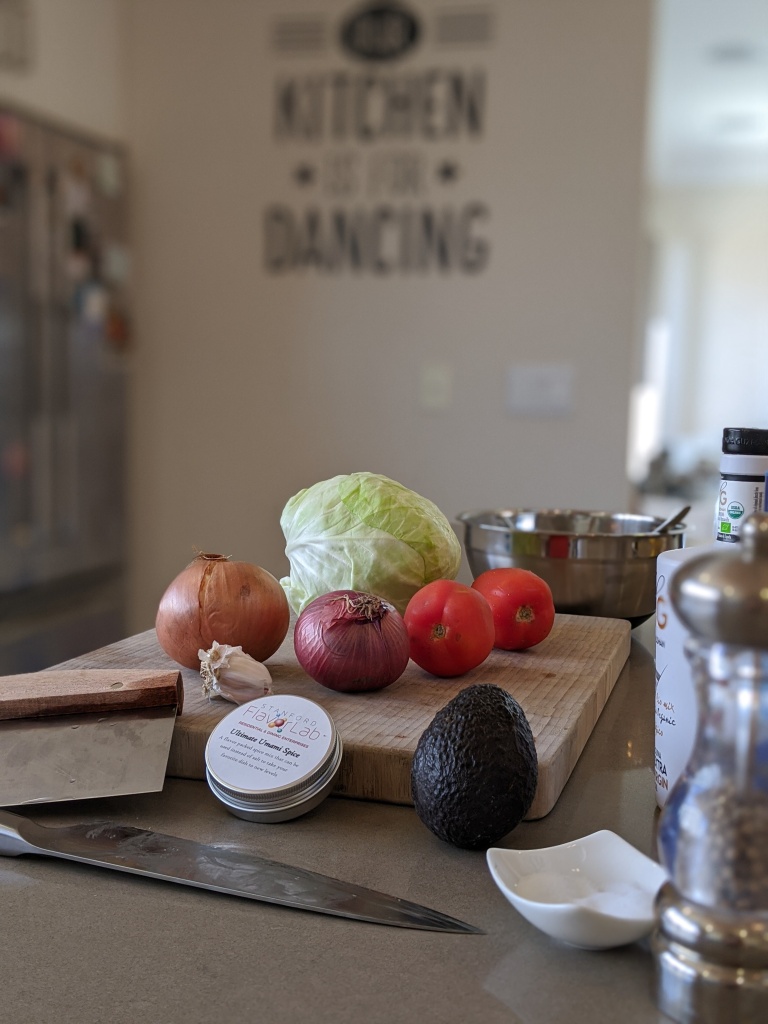Food literacy, unlike nutrition, is not a conceptual knowledge. It is the ability to find, prepare, and eat food in a way that keeps us healthy, both mentally and physically.
The COVID-19 crisis reveals trends that were long underway. As the food literacy crisis in the US and most western countries hasn’t waited COVID-19 to be identified by scholars, it shows its critical importance in this new world of restaurant shortage, social distancing at grocery stores, and online delivery scarcity.
For years now, the food industry has palliated the loss of culinary skills in homes: the US experienced its 3rd generation of “no-cook-at-home” family structure. Eating is now a shopping activity, from frozen meals to canned veggies, to cheese and veggies snacks, from to-go restaurants to microwave ready meals.
As all crisis, it also reveals a system with deep inequality, leading to physical and mental health issues: when wealthy people can pick-up 3 Michelin stars restaurant meal kits, and experienced home-cooks can use meal kit delivery services, most people can only afford the $X menu + ($4 delivery) at McDonalds via UberEat. When privileged class can reduce their stress cooking, find a sense of purpose and community, the vast majority is reduced to high-calorie-low-nutrient food, that increases digestive issues – rendered even more problematic by the difficulty of exercising and social pressure to “stay-at-home”.
 In response to this crisis, Chefs can do a lot. Chefs, who are the rare holders of an endangered skillset, have started reaching out to the community to share basic culinary tips and tricks. Without fees, they demonstrate a sense of teaching that we could never have imagined, watching Ratatouille’s depiction of a professional kitchen ambience.
In response to this crisis, Chefs can do a lot. Chefs, who are the rare holders of an endangered skillset, have started reaching out to the community to share basic culinary tips and tricks. Without fees, they demonstrate a sense of teaching that we could never have imagined, watching Ratatouille’s depiction of a professional kitchen ambience.
What was available only to a happy few who have time to sort out the best recipe on allrecipes.com, following approximative indications and translating the metric system into imperial or vice versa, is now easily available on the web and provided by real professionals in the field. After purchasing 30 pounds of pasta, you soon need to find creative ways to accommodate them, and learn how long and in what condition you can store them.
This “Cooking Revolution” is the one where chefs, once hidden in authoritarian kitchens, are now sharing their skills and passion on the web, enabling us all with an essential knowledge that is woefully lacking in the traditional academic curriculum: food literacy.
Not only does food literacy provide the ability to choose ingredients, prepare and combine them in a tasty way. It is also the understanding that meals are a shared experience, that bring us together and allow us to move on from physiological distress to a collective well-being, creating a sense of belonging and giving everyone a place at the table.
A special mention to my favorite chefs on instagram, from Stanford University Dining and Stanford Dining Teaching Kitchen: https://www.instagram.com/stanforddining/